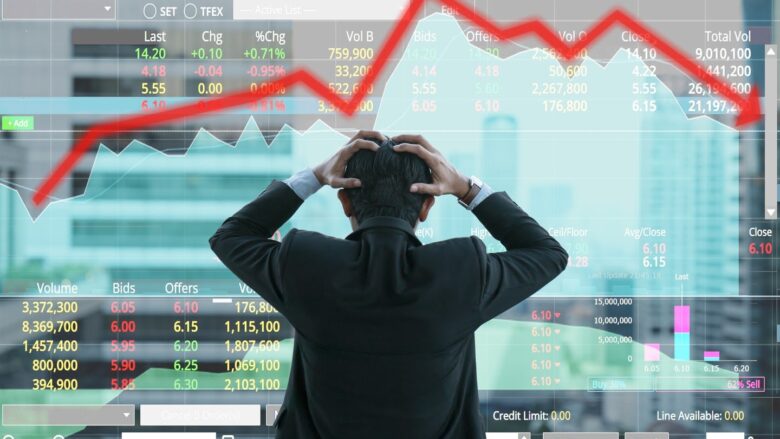Stock market crashes are like emotional earthquakes that erode confidence, destroy wealth, and test even the most experienced investors. When the stock market drops and red warning signs appear on your screen, the first thing you might think of is fear. The truth is, most people panic, but the best investors stay calm. Why? Because they’ve learned to see opportunities where others see problems. They know that fear makes it hard to think clearly and that panic is not a good way to solve problems. Some of the greatest fortunes in investment history have been made during times of crisis. This article explores how top investors stay calm when the market collapse and how they can profit from the chaos.
Understanding the Nature of Market Cycles
Markets don’t move in a straight line. They rise, fall, correct, and then rise again. These cycles aren’t random; they’re natural and often easy to predict. The best investors understand the patterns. They realize that every fall is followed by a rise and that short-term losses are sometimes just the price of long-term gains. Instead of getting discouraged, they look to the past for guidance. They look back at historical crashes to see why and how they happened and see how today’s market is similar to the past. They don’t let fear hold them back; they remain patient because they realize that investing for the long term is smarter than trying to time the market. For them, a downturn is just a short-term blip, not a disaster.
How Fear Affects Investment Decisions
When markets fall, fear spreads like wildfire. It forces people to act irrationally, which ultimately leads to losses. People often panic and sell to cut their losses, which means they lose money they could have made back. Some people freeze completely and can’t do anything. This is called “loss aversion,” which refers to the pain of a loss that is so intense that it wipes out future chances of profit. Fear clouds our thinking, makes the worst-case scenario seem worse, and makes us forget why we invested in the first place. Top investors deal with this by sticking to a plan, being data-driven, and ignoring sensational news.
The Power of Forward Thinking
One of the best ways to stay calm during market crashes is to take a long-term view. In the grand scheme of things, short-term crashes are just bumps in the road. Top investors focus on a company’s long-term earnings, cash flow, and growth potential, not on day-to-day price changes. They know that building wealth takes decades, not days. Even if the market drops 20% in one week, it usually recovers and rises significantly in the months or years that follow. This perspective helps them stay strong when others leave. They avoid the pitfalls of short-term fear by focusing on long-term goals.
Before the Crash: Be Prepared
You need to learn to stay calm long before the market crash. Top investors typically prepare for market downturns. They diversify their investments, set aside emergency capital, and set realistic goals for market volatility. Some use hedging strategies to reduce risk, while others do research and plan to increase their resilience to risk. This preparation gives people confidence. When the market falls, they don’t act rashly; they are prepared. Their portfolios perform well in both good times and bad. This preparation reduces personal stress and helps them think clearly when emotions run high.
Why Buying During a Crash Is a Smart Move
Most investors sell because they are afraid, while the best investors buy. Why? Because a crash causes prices to fall.
When great companies are briefly mispriced, smart investors can buy quality assets for a fraction of their value.
“I am afraid when others are greedy, and I am greedy when others are afraid,” Warren Buffett once said. This mindset allows the best investors to profit from panic. They know that opportunities arise when the market is overly emotional. They invest when others are hesitant to invest and often reap great rewards when the market rallies. It’s not luck; it’s having the courage to do it when others hesitate to invest.
The Role of Mindset and Discipline
When the market crashes, it’s not just about how you react; it’s also about your mindset. Top investors know how to control their emotions. They don’t panic when the market goes down, nor do they chase peaks. They stick to their plans even when they face setbacks. You can develop this self-discipline through experience, but also through conscious mental training. They learn to deal with stress, accept unpredictability, and don’t get emotionally attached to their investments. They feel fear, but they don’t let it control them. They think logically, are patient, and believe in their long-term goals. It’s this mindset advantage that makes some investors succeed in difficult situations, while others fail.
Conclusion
Market crashes are inevitable, but you don’t have to panic. How you react when things go bad determines whether you lose big or come out stronger. Top investors don’t run from recessions; they face them head-on with a plan, patience, and a long-term perspective. They stay calm because they know what they’re doing, believe in their process, and see opportunity in chaos. If you want to succeed when others panic, you need to change your mindset. Plan ahead and don’t let short-term worries get in the way of your long-term wealth-building goals. It’s not enough to survive a disaster; you need to put yourself in a position to profit from it.
FAQs
1. What are the main causes of stock market crashes?
Stock market crashes can happen for many reasons, including recessions, political instability, overvaluations, or global events. Panic and herd behavior often make the situation worse.
2. Should I sell all my stocks if the market crashes?
No. Selling too quickly can cost you money. If your financial goals or investment fundamentals haven’t changed, it’s best to think rationally and stick to your long-term plan.
3. Is it safe to invest if the market crashes?
Yes, as long as you do it right. You can usually buy quality assets at a lower cost when the market crashes, but it’s crucial to do your research and stay diversified.
4. How can you avoid emotional investing?
Develop a solid investment plan, set clear goals, diversify your investments, and don’t let daily market news influence your decisions. You must have emotional self-control if you want to succeed in the long run.
5. What do good investors do differently when the market crashes?
They stay calm, stick to their plans, look for opportunities, and think about how to achieve long-term growth instead of panicking in the short term. Because they are well-prepared and disciplined, they thrive in difficult times.




